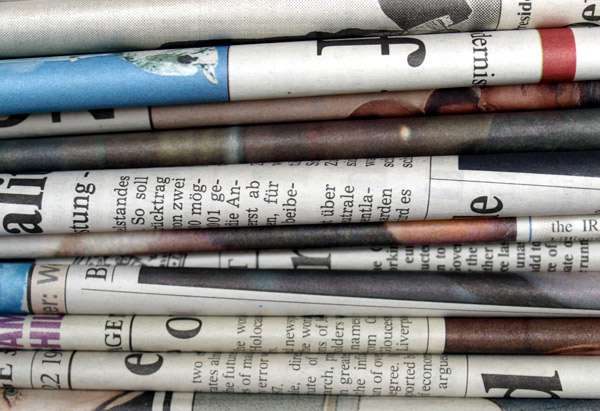Watch This. No. Read It!
In our high-speed-connection world, why bother to read when you can get it all electronically? We make the case for not closing the book.

When you can see Atonement in two hours and 10 minutes (enacted by the very appealing James McAvoy, no less) or listen to it on audiotape, why bother working through the 371-page novel? For that matter, why trudge through the newspaper when you can turn on CNN? Why puzzle over a manual when you can YouTube the instructions? Everyone knows the book is always better than the movie, but is there any real advantage to getting your information by reading it?
Yes, according to neuroscience—your mind will most definitely thank you.

This article is part of Oprah.com's 2011 Feel Good Challenge. Join now—and move closer to the life you want!
Just like muscles, the brain benefits from a good workout. And reading is more neurobiologically demanding than processing images or speech. As you're absorbing, say, this article, "parts of the brain that have evolved for other functions—such as vision, language, and associative learning—connect in a specific neural circuit for reading, which is very challenging," says Ken Pugh, PhD, president and director of research of Haskins Laboratories, which is devoted to the science of language and affiliated with Yale. "A sentence is shorthand for a lot of information that must be inferred by the brain." In general, your intelligence is called to action, as is greater concentration. "We are forced to construct, to produce narrative, to imagine," says Maryanne Wolf, director of the Center for Reading and Language Research at Tufts University and author of Proust and the Squid: The Story and Science of the Reading Brain. "Typically, when you read, you have more time to think. Reading gives you a unique pause button for comprehension and insight. By and large, with oral language—when you watch a film or listen to a tape—you don't press pause."
The benefits of all this mental activity include keeping your memory sharp, your learning capacity nimble, and your mind basically hardier as you age. No one's advising that you toss the DVD player—or books on tape, which, Pugh says, provide more work for your brain than seeing a movie—but print should take up part of your life too. A literate mind is a more complex one. "There's a richness that reading gives you," Wolf says, "an opportunity to probe more than any other medium I know of. Reading is about not being content with the surface." Even when it is superficial (what's a plane ride without a little celebrity gossip?), indulging in a tabloid beats watching TV—just processing the words boosts the brain. "If you had your druthers," Pugh says, "you'd rather be reading."
Keep Your Mind Sharp
Read more: http://www.oprah.com/health/How-Reading-Can-Improve-Your-Memory#ixzz1dosfhj3Q
No comments:
Post a Comment